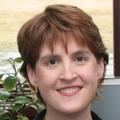Cited By
View all- Maiorana FCsizmadia ACristaldii GRiedesel C(2024)Education With PassionNavigating Computer Science Education in the 21st Century10.4018/979-8-3693-1066-3.ch007(129-148)Online publication date: 8-Mar-2024
- Ellis HHislop GGoldweber MRebelsky SPearce JOrdonez PPias MGordon N(2024)Computing for Social Good in EducationACM Inroads10.1145/369971915:4(47-57)Online publication date: 11-Nov-2024
- Hislop GEllis H(2024)HFOSS EducationACM SIGCSE Bulletin10.1145/3672203.367221056:2(9-13)Online publication date: 1-Apr-2024
- Show More Cited By



